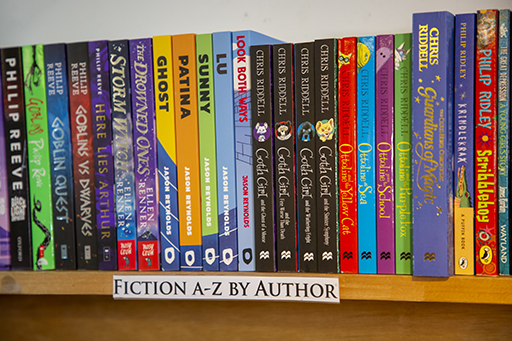8 Involving authors, illustrators and poets
Meeting an author in person or online can be an exciting and valuable experience for young readers and can increase their interest in books and reading. Many writers speak passionately and personally about their work. Author visits, if carefully planned and prepared for in partnership with the visitor, can shift young people’s relationships to books and support their journeys as readers. Visiting authors and illustrators tend to read to children from their work, run writing workshops and promote reading. Many organisations exist which broker author visits, some of which can be found in the Further resources section at the end of this session.

Classes also connect with authors on social media, which can increase children’s enthusiasm for their work and, by association, reading. For example, the Patron of Reading scheme in the UK focuses on fostering a Reading for Pleasure culture by an author, poet, storyteller or illustrator developing a relationship with a school to build reader-to-reader and writer-to-writer relationships over a sustained period of time. Whilst relatively few studies have tracked the impact of these arts and cultural opportunities, those that exist tend to focus on the impact on young writers. However, in relation to inspiring readers, anecdotal evidence is frequently positive. Arts Council subsidies are available to support funding visits and some charities offer free children’s literature festivals, such as Pop up Education. These opportunities enable larger numbers of children to access authors online. A Book Pen Pal initiative in which postcards with book recommendations are exchanged, also connects children with authors. These connections are part of wider community-building partnership work.
